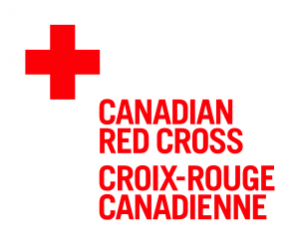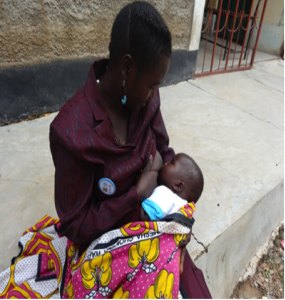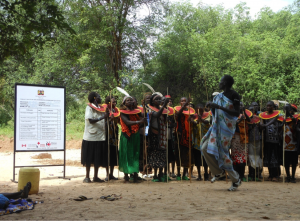Notes from the Field: Training CHWs in Kenya – Lessons Learned

With the support of the Canadian Red Cross (CRC), the Kenya Red Cross Society (KRCS) is implementing a three-year Maternal Newborn and Child Health (MNCH) project, designed and funded by the CRC, in 11 communities of Central Pokot, West Pokot County. As an auxiliary to the government, the KRCS always works hand in hand with the national Ministry of Health (MOH). The MOH identifies the appropriate number of Community Health Workers (CHWs) required in the Red Cross targeted communities and facilitates their recruitment and registration processes. Community ownership is also key to the sustainability of community health services. That is why in Kenya the Community Health Committees (CHCs) of the 11 targeted communities play a major role in the recruitment of the CHWs and are supported by the Ministry of Health’s District Health Management Team (DHMT).
To date, the KRCS/CRC project selected a total of 300 CHWs. They have been trained to assess, treat and refer sick children, ensuring community-level access to basic health services. The CHWs were also trained in Community Based Maternal and Child Health (CBMCH). The trainings are conducted by the MOH following its Integrated Community Case Management (ICCM) protocols. KRCS and CRC also conducted trainings on Community Based Health and First Aid (CBHFA), the Red Cross integrated primary health care approach to community health promotion.
Mercy is one of the CHWs the KRCS/CRC project trained in 2012. She has been a CHW since 2009 under different programs in the Nyangaita region of Kenya. When Mercy was first recruited to be a CHW, her lack of knowledge made it difficult for her to provide services to other women and children in the community. As a first-time mother, Mercy never received counselling on child upbringing or sought any antenatal care or information during her pregnancy. She lacked essential knowledge and skills in MNCH. This changed in 2012 when she enrolled in the KRCS/CRC MNCH project. Through the training provided by this project, Mercy learnt about the importance of having four antenatal visits during pregnancy, individual birth plans, skilled birth attendants, exclusive breastfeeding, family planning and hygiene.
Mercy has benefited tremendously from the trainings offered to the CHWs in the region. She gained valuable skills which she has not only passed on to other women in her community, but is also applying in her own life as a mother to her recently born baby.
Another important component of the CHWs’ training is the reporting. The results of a Rapid Health Facility Assessment (RHFA) conducted by the Canadian Red Cross and the Kenya Red Cross Society in early 2012 showed that monthly reports had not been submitted because the reporting tools were lacking in most of the community units and the CHWs failed to understand the tools. The findings of the RHFA helped the KRCS and the CRC to identify priority areas and informed discussions with the DHMT on the best ways of bridging the gaps.
It is in this way that the KRCS and CRC supported the MoH in the procurement of Monitoring and Evaluation tools for the implementation of the community health strategy. The tools provided include: Household register (MOH 513), CHW service log book (MOH 514), CHEWs summary (MOH 515), CHW Referral book, chalk board (MOH 516) and chalk board book used by the Community Unit as reference for their performance. Moreover, at the end of the training all CHWs received the household registers among other tools. The use of the MOH’s register is critical because it is directly linked to the National Health information system, thus generating reliable data on the performance of the MOH’s Community Health Strategy.
The information collected by the CHWs not only feeds into the MOH Health Management Information System (HMIS), but it is also valuable for community education. Indeed, quarterly community dialogue days are organized with the aim to help communities better understand health challenges and make decision for further actions. During the dialogue days, the community units discusses on the poor performance on selected indicators and come up with an action plan. The challenges discussed include the attendance of Antenatal Care visits, deliveries at the health facility and immunization coverage. The CHWs and CHCs also conduct Behavioral Change Communication activities (BCC) on Malaria Prevention and Control, Hygiene, Nutrition including breastfeeding and adequate diet.
This post was submitted by Tahina Rabezanahary, Program Manager, Africa, Canadian Red Cross.
Check out Canadian Red Cross’ CHW activities across sub-Saharan Africa on the 1mCHW Campaign Operations Room.



3 Comments
Debora Achieng
Hi, I have just read about the 1 million health workers campaign. Many thanks to CRC and KRCS for the trainings and services that they provide to CHWs, women and the community as a whole. I’m a student at Great Lakes University of Kisumu. Thanks for the information you provided, it’s useful
Beatrice Akinyi Opiyo
This is motivating extend your services to cus in kabondo kasipul subcounty Am ACHEW
philip wambua
I thank the MOH for recognizing the role of community heath workers? Am student frm MT kenya unversity taking diploma in community heath and HIV/Aid management and I will be vry glad if the MOH creates more opportunities on heath workers.